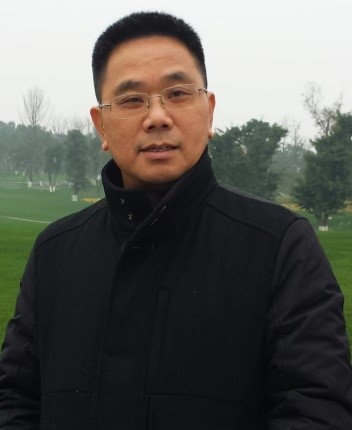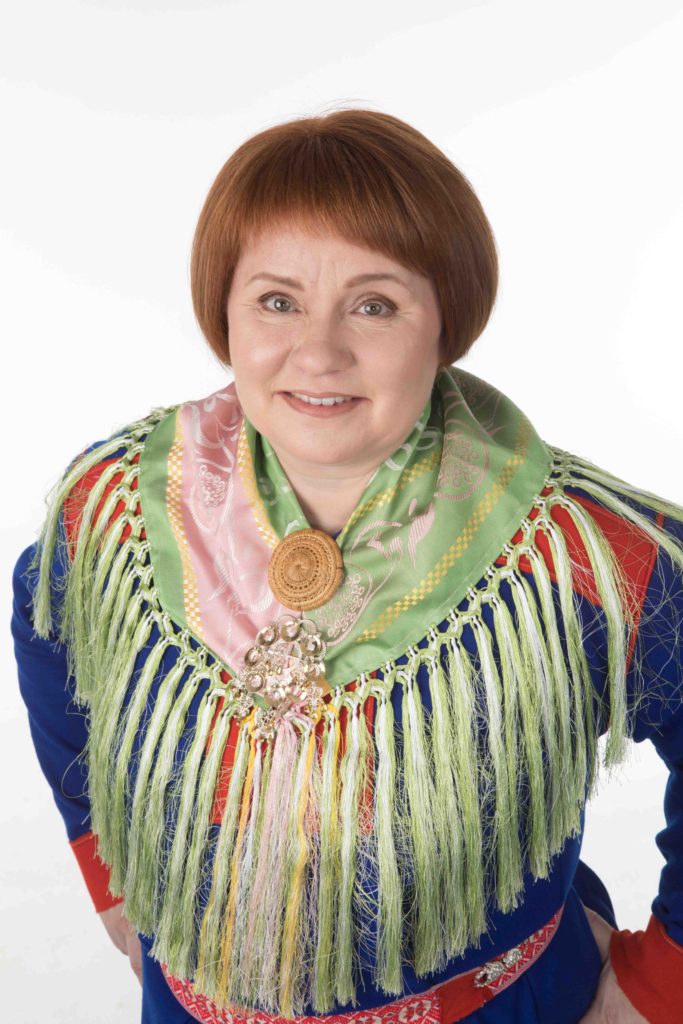
Keynote 1
The Missions and Orientations of Chinese Normal Universities in the New Era
Prof. Dr. Shijian Chen
Professor, Southwest University, China
About Dr. Shijian Chen
Dr. Shijian Chen is a professor at the Southwest University, Faculty of Teacher Education, China. He currently serves as Vice President of the International Education Sub-commission of Chinese Education Society. Additionally, Dr. Chen holds roles as Deputy Director of the Steering Committee for Education Pedagogy in Higher Education, and Deputy Director of the Steering Committee for In-service Middle School Teacher Education, both at the Chinese Ministry of Education.
Keynote abstract
Normal universities are the core force of China’s teacher education. They shoulder the missions of
serving the national strategic needs for an education power, they are expected to build a high-quality system of teacher education, and to lead an innovative development of basic education.
In the new era, normal universities are supposed to adhere to the development of both high-level universities, and high-quality teacher education, build a teacher education system integrating teacher preparation and training, strengthen the cluster-based development of teacher education disciplines and the basic disciplines of arts and sciences, as well as improve the innovation of teachers and talents in teacher education.

Keynote 2
Navigating Towards Future Competences: Finding Common Ground Through Contextual Lenses
Dr. Lauri Palsa
Senior Adviser, National Audiovisual Institute (Kavi), Finland
About Dr. Lauri Palsa
Lauri Palsa, PhD is a Senior Adviser at the National Audiovisual Institute, Kavi, in Finland. He has several years of experience in researching, developing, and promoting national media education in Finland. Palsa is the co-author of the policy document “Media Literacy in Finland – National Media Education Policy”. Currently he is responsible for the new Inclusive and Creative Media Education (ICME) programme. He is interested in developing contextualised literacies in the digital world, competence-based education, curriculum research and media education.
Keynote abstract
The scale and speed of developments such as digitalisation are sparking a debate in societies and in different fields of education about the objectives of teaching and learning. What competences are the most needed in the mediated world and how can those be developed? Even though a variety of concepts and definitions are currently presented, they are often discussed on a general level, leaving room for multiple interpretations, misunderstandings, and confusion.
In his presentation, Palsa explores the development of competence-based education from a local perspective: How central concepts can be defined in a way that supports the relevance of education in different levels enhances the educational practice and promotes shared understanding. The aim of the presentation is to broaden the understanding of the importance of contextuality, cooperation, and critical conceptual discussion in educational planning and development.

Keynote 3
The Implementation of High-Quality Teaching Using Remote Solutions in Sparsely Populated Areas: Sami Distance Teaching as an Example
Prof. Dr. Pigga Keskitalo
Professor, University of Lapland, Finland | Adjunct Professor (Title of Docent), University of Helsinki, Finland
About Dr. Pigga Keskitalo
Pigga Keskitalo holds a PhD in Education and is a Professor of education, specifically in Arctic perspectives in education, at the University of Lapland, Faculty of Education, Rovaniemi, Finland. She is also an Adjunct Professor (Title of Docent) at the University of Helsinki. Keskitalo has participated in various national and international research and development projects regarding topics of socially sustainable development, education, and equity in global and Arctic communities, as well as, more specifically, in Sami education and language teaching. She has previously worked for 20 years in Norway as a teacher educator.
Keynote abstract
In this presentation, Pigga Keskitalo will review high-quality education using remote teaching solutions in sparse population education contexts. In the future, there is need for innovative solutions so that everyone can reach quality education in their living contexts. Endangered Sami languages have developed distance education since the 1990’s, so that children and language learners – despite their location – can learn Sami languages.
In Finland, there is a Sami language distance education project. The Academy of Finland-funded research project, ADVOST concentrated on developing this distance education in a small children’s context. The research project also implemented land-based education, storytelling, and playful learning into distance education. Keskitalo will present this project and core results.

Keynote 4
Education for Sustainable Rural Development: Conceptual Framework and Good Practices
Dr. Yuchi Zhao
Deputy Director, International Research and Training Centre for Rural Education (UNESCO INRULED) | Lecturer, Beijing Normal University, China
About Dr. Yuchi Zhao
Dr. Yuchi Zhao is the Deputy Director of the International Research and Training Centre for Rural Education under the auspices of UNESCO, as well as Lecturer at the Faculty of Education of Beijing Normal University, China, and APEC Education Network Coordinator (2023-2024). He has previously worked as a loaned expert as the coordinator of the UNESCO Prize for Girls’ and Womens’ Education, and as the coordinator of the UNESCO-Hainan Airlines Funds-in-Trust Project at the UNESCO headquarters from April 2019 to October 2021. From 2006 to 2011, Zhao took the role as the Executive Deputy Director for the China-UK Southwest Basic Education Project (with a grant of 27 million pounds) at the Chinese Ministry of Education. His research interests are education and international development, rural teachers’ professional development and girls’
and womens’ education.
Keynote abstract
The World Bank statistics of 2020 show that 44% of the world’s population lives in rural areas. In low- and
middle-income countries, the share of rural people is 58%. How can we achieve development for all without sustainable development in rural areas? What role does education play in this regard, and how can
we imagine the futures of rural education? Are we anticipating a repetition of urban education practices
in rural areas or explore contextually relevant practices? How can education in rural areas serve for rural development? This presentation seeks to answer these questions, conceptualise the framework on education for sustainable rural development, and share some good practices.

Keynote 5
Reshaping Education Systems in the VUCA Era: Concepts, Paths, and Dilemmas
Dr. Baocun Liu
Director, Institute of International and Comparative Education (IICE), Beijing Normal University, China | Professor, Beijing Normal University, China
About Dr. Baocun Liu
Dr. Baocun Liu is a Professor of comparative education and the Director of the Institute of International
and Comparative Education (IICE) at Beijing Normal University. He serves as President of China Comparative Education (CCES). With his specialisation and research interests in comparative education, higher education, and education policy and management, he has been involved in a wide range of national and international research and consultancy projects. Liu has published more than 300 journal papers and 20 books. He has received many honours and awards for his research and teaching in the field of education, including the Chinese Ministry of Education Distinguished Professor of Changjiang Scholars Program.
Keynote abstract
In order to address the challenges of the VUCA (volatility, uncertainty, complexity and ambiguity) era,
international organisations – such as the United Nations, UNESCO, and the World Bank – have released a series of research reports in recent years, calling for the reshaping of the education system and for the establishment of high-quality education system for the future.
The research behind this presentation aims to review the challenges, concepts, paths, and dilemmas of reshaping education systems with comprehensive methods, including content analysis of the reports of the international organisations mentioned above, as well as engages in a systematic literature review. With the challenges from both the inside and outside of the education system, the task of reshaping education systems is getting more imperative in every 16 | 60 JoLII-GINTL Global Conference 2023: “Education for the Future” country. The current study is expected to add value for the research on global education reforms and provide implications for education system reinvention in different countries.

Keynote 6
Change Capital: Financing the Futures of Education
Dr. Crystal Green
Research Director, HundrED | Visiting Scholar, University of Helsinki, Finland
About Dr. Crystal Green
Dr. Crystal Green is Research Director at HundrED, where her work explores changes in pedagogy and education systems from the perspective of innovation. Her research has focused on the sociology of education and comparative international education. Green is visiting scholar at the University of Helsinki in the AGORA Centre for the study of Social Justice and Equality in Education, and is author of “Freire and Critical Theorists”.
Keynote abstract
Research on change in education has often been most concerned with shifts in pedagogy and policy. Recognising that a variety of actors are shaping education from inside and outside education systems,
Dr. Crystal Green calls on education researchers to more systematically consider the ways financing shapes educational change. She draws attention to the mechanisms that release different types of funding for education, and the power of decision-makers who are able to set the agenda and allocate budgets. These flows of capital have implications for what kinds of changes are made, who is making them, and the speed of change.














